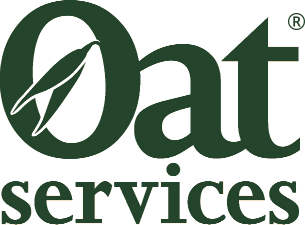QUOATS, a five year research project (LK09124), developed and applied state-of-the-art genomic and metabolomic tools for oat genetic improvement. It focused on the understanding and manipulation of key traits that enhanced the value of oats in human health improvement, capitalised on the value of oats as a low input cereal, increased the environmental and economic sustainability of cereal based rotations, realised the potential of oats as a high value animal feed and developed new opportunities for using oats through advanced fractionation.
The Project
KEY POINTS
- The overall goal of this proposal was to employ state-of-the-art genomic tools for oat genetic improvement building on the Defra and RERAD SAL LINK sponsored OatLINK project which provided a pipeline for the transfer of improved genetic material into the oat supply and value chain for the benefit of producers and consumers.
- Harnessing the unique properties of oats both as a plant and a grain we addressed some of the emerging problems with cereal cultivation and at the same time delivered an environmentally benign crop which offers considerable health benefits for human and livestock consumption.
More Info
Further research on oats is required for several reasons. Increasing global demand for cereals coupled with the increased cost of energy and fertiliser is impacting directly upon the profitability and competitiveness of UK cereal growing. Responding to these challenges, there has been a trend towards continuous wheat rotations which increases soil borne diseases and weed problems impacting on profitability. Producers are endeavouring to optimise their overall farm returns which has led many to grow crops on less fertile soils or in more marginal situations. At the same time the increased cost of fertiliser N and environmental concerns emphasises the need for crops that use N more efficiently (HGCA Research review No. 63) so reducing the main environmental burden in arable crop production (Nemecek, 2004). For the livestock sector the high cost of imported concentrates has increased the opportunity for a high quality feed that can be grown and fed “on-farm” in an environmentally sustainable manner. The high Actual Metabolisable Energy (AME) in oat grains and the lower fertiliser and pesticide input when growing the crop means that oats have a lower environmental footprint per AME delivered.
Oats are a valuable break crop in cereal rotations reducing disease and weed problems, a lower input crop than wheat, perform well in marginal areas and are a high value feed that grows well in grassland based rotations. Nevertheless there is a need to improve key traits that will increase the production and utilisation of oats whilst also mitigating climate and environmental change via reduced agricultural inputs. Research also needs to anticipate changes in the market as consumers shift towards healthier diets of which oats are a key component. Discussions with end-user groups from the milling and livestock sectors as well as processors have identified the priority areas that will be the scientific focus of this proposal and where genetic improvement can make quantifiable improvements. As the recent Chatham House report states ‘Work must start now to create a UK food supply that meets new standards of resilience, sustainability and competitiveness based on stakeholder partnerships’ (Ambler-Edwards et al, 2009). This project fits those criteria ideally.
An important target for OatLINK was to integrate molecular marker technology with conventional selection and trait analysis and to demonstrate the value of molecular based approaches by applying markers to specific traits. This has been achieved successfully. However, as various approaches to marker discovery have been tested and high density oat maps established, it has become clear that there is relatively little polymorphism in cultivated oats. There is therefore a pressing need to understand underlying genetic processes in order to maximise use of available polymorphism and also to be able to select precisely for novel polymorphisms from non-UK adapted germplasm if it is to be used effectively by plant breeders.
This project will integrate conventional and molecular methods of selection with high throughput analysis of grain composition in relation to the development of oats for human and livestock production and industrial uses.

